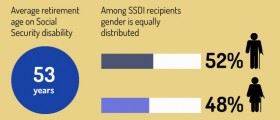
Developmental disability is an expression that alludes to a permanent physical and/or mental incapacity with the onset before the age of 18. Developmental disability differs from developmental delay because the latter is triggered by a brief disease or severe mental or physical pain experienced during childhood.
Causes of Developmental Disability
Determining the exact cause of developmental disability is very difficult, and in some cases even impossible. There is a wide range of factors that evoke developmental disabilities, and some include head trauma, growth issues related to diet, anomaly of genes and chromosomes, being born long after the due date, careless nutritional and health habits on the part of the mother while being pregnant, autism, and so on.
Developmental Disability and Mental Health Issues
A number of mental, or psychiatric health issues are much more probable to occur in individuals suffering from developmental disabilities than in those who are not. Some of the reasons for this occurrence include a higher risk of experiencing hurtful social or emotional events in life, limits placed on the lives of the disabled in the means of lack of employment, education, and relationships, behavioral problems such as not understanding social conventions, external monitoring, and so on.
In addition, individuals with developmental disabilities are at a much higher risk of abuse, which for them is more debilitating than for the non disabled. Some common examples of abuse include Somatic, sexual, emotional, financial, and peer abuse. Further, crime rates among the developmentally disabled are much higher than of the non disabled, while the criminal justice system is not capable of dealing with such individuals, either as victims or perpetrators.
Challenging Behaviour
Challenging behavior in people with developmental disabilities is deemed culturally unacceptable as it poses a risk for the individual in question as well as people around him or her. Such behavior constitutes aggression toward self or others, improper sexual behavior in public, destruction of property, and banal behavior characteristic of the disabled individuals. Challenging behavior is brought about by a number of factors such as physical discomfort, disinterest, limited understanding of socially acceptable behavior, loneliness, and so on. On average, behavioral interruption on the part of an experienced therapist has proven to be productive in decreasing specific challenging behavior.
Societal Attitudes towards People with Developmental Disabilities
During history, individuals with developmental disabilities were regarded as unable to take care of themselves and make sound decisions. Often, they were severely discriminated against, especially in the middle ages, during Renaissance, and in the World War II. In the 18th and 19th centuries, disabled individuals were sheltered in public asylums where their families would place them at birth. Living situation varied widely from asylum to asylum, but most provided only basic human needs necessary for survival.
However, in 1952, contrary to popular mindset, Civitans started to organize educational sessions for teachers, as well as daycare centers for the disabled children. In 1969, Wolf Wolfensberger supported this shift in paradigm by publishing “The Origin and Nature of Our Institutional Models". The result was acceleration of desegregation, and a push for the recognition of basic human rights for the developmentally disabled. By the 1970’s, most communities stopped hospitalizing the developmentally disabled, and started to work on their acceptance by the general population. To this day, persons with developmental disabilities are not yet fully assimilated into the community.
Education and Training
In recent years, many educational institutions are creating more favorable conditions to accommodate people with developmental disabilities. The programs are being adjusted to meet the needs of special students, but most of them only deal with simple abilities. However, there are some postsecondary schools that provide professional training that can be applied in the workplace.
Employment support
Employment opportunities for the developmentally disabled include participation in an integrated work setting, or partaking in a segregated professional environment. Working in an integrated setting involves lots of help from the group, which is usually small to begin with. Another kind of working for a living consists of employment in a segregated area, and such work is usually clerical, in a factory or on a farm.
Developmental Disability and Employment Statistics
Employment statistics point to an inequality in the workforce between those with disabilities and those without. Presently, there are 1.3 million developmentally challenged individuals in the UK who could work. Among the disabled, only 50% of those in their prime working years are employed, while 80% of the non disabled people have jobs. Among those with a mental disability, only 20% have jobs, while at the same time 23% of the disabled have no credentials, compared to the 9% of their non disabled counterparts. In the UK, 1 person out of 5 in their working prime has a disability, and they are paid, on average, £11.08 per hour, while the non disabled get £12.30 per hour.
















_f_280x120.jpg)
Your thoughts on this
Loading...